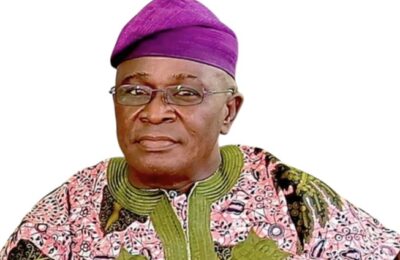In the shadows of Libyan detention cells, where humanity is stripped to its barest form, a generation of Nigerian women languishes — unseen, unheard, and unforgiven by a world that moved on. Their stories are buried beneath the sands of the Sahara and the silence of bureaucracy. They are women once driven by dreams of survival, now trapped in cycles of degradation — raped by prison guards, abandoned by traffickers, and forgotten by home. Within those walls, life has continued in the cruelest form possible: children born not from love, but from captivity.
Three days ago, in Nigeria’s Senate chamber, a voice rose to pierce that silence. Senator Natasha H. Akpoti-Uduaghan, representing Kogi Central, moved what history may one day remember as one of the most humane motions ever spoken on the floor. In supporting Senator Etim Bassey Aniekan’s motion to curb human trafficking in Libya, she added a prayer — not political, but profoundly moral: that the Federal Government, through the Nigerian Immigration Service and the Nigerian Correctional Service, work with Libyan prison authorities to repatriate Nigerian female prisoners and their children born behind bars.
Her motion was seconded by the Senate Leader, Opeyemi Bamidele, but its resonance stretched far beyond the walls of parliament. It spoke to the conscience of a nation and the heart of a continent.
For too long, the plight of trafficked Nigerian women in Libya has lingered in the margins of humanitarian reports — their voices muffled by the noise of geopolitical priorities. Yet, behind every statistic is a heartbeat; behind every number, a name. These are women who left Nigeria with borrowed dreams and broken promises. In pursuit of freedom, they found chains. In search of hope, they found horror.
Libya, once a passage to Europe, has become a graveyard of African migration — a dark theatre where desperation meets exploitation. Countless Nigerian women have been trafficked through its deserts, only to end up in detention centers masquerading as prisons. There, according to multiple reports, sexual violence is both a weapon and a currency. Out of that terror have come children who know no sunlight beyond iron bars, no lullaby beyond the groans of their mothers.
Senator Natasha’s call is more than a motion — it is a moral awakening. It summons Nigeria to reclaim its lost daughters and the children of their pain. It demands that the government match empathy with action, policy with compassion.
But repatriation alone is not enough. Homecoming without healing is another kind of exile. These women and their children must not return to silence; they must return to systems that listen, heal, and restore. Rehabilitation centers, psychological care, and reintegration programs should follow every plane that brings them home.
And the responsibility is not Nigeria’s alone. The international community cannot continue to treat North Africa’s detention system as a blind spot in global conscience. Human trafficking thrives because the world still tolerates the commodification of the poor. The silence of nations that benefit from the migration chain is complicity wrapped in diplomacy.
This is where moral leadership matters. Senator Natasha’s voice echoes the same defiance that once shaped global reform — a reminder that politics, at its purest form, is an instrument of compassion. Her motion humanizes policy. It forces the nation to look at the faces it has forgotten.
The image of a Nigerian child taking his first breath inside a Libyan cell should haunt the world into responsibility. Those children did not choose their birthplace; they are citizens of a nation that must now choose them.
For every tear dropped in those cells, for every cry muffled by concrete walls, Nigeria’s silence has been its own indictment. To act now is to atone; to delay is to deny humanity.
The Senate has spoken. The world must listen. History’s gaze will not be kind to indifference.
Senator Natasha’s voice is more than a plea — it is a reminder that leadership is not about power, but about the courage to protect the powerless. And somewhere, in the darkness of a Libyan cell, a mother whispers to her newborn — “someday, we will go home.”
That hope, fragile as it is, is now in Nigeria’s hands.
– Inah Boniface Ocholi writes from Ayah – Igalamela/Odolu LGA, Kogi state.
08152094428 (SMS Only)




